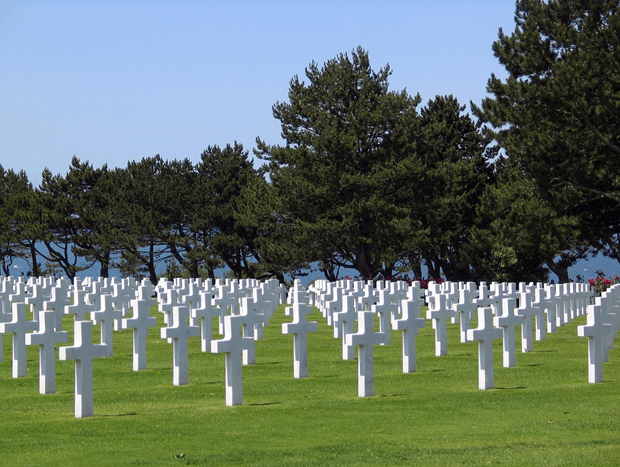

Veterans have made many sacrifices for a cause that requires an immense amount of perseverance and dedication. Whether they pass away in combat or in old age, family and friends often want to plan a burial that’s as dignified as they were. Creating a memorial that commemorates their life, while also celebrating their service, is a distinguished way to honor a veteran.
However, there can be confusion about the benefits available for the final arrangements of a veteran. The U.S. Department of Veterans Affairs (VA) is responsible for helping veterans and their families understand their burial benefits. From burial allowances to a 21-gun salute, funerals, memorials and celebrations of life are times when we honor and recognize a veteran’s courage and contributions. Whether you’re making final arrangements for a veteran loved one or a veteran making your own final arrangements, this guide will help you:

Arranging a person’s final resting place is a key priority when planning a funeral. Military members and veterans — and their families — have a lot more options than you might think.
Can a veteran only be buried in a National Cemetery?
Veterans and active duty military are free to be laid to rest in any cemetery of their choosing, not just a military-specific place. However, there are 135 National Cemeteries in the United States, the oldest of which was established in 1862. Veterans who were discharged in any way but dishonorable, active duty military personnel, spouses and children can all find their final peace in one of these cemeteries.
Burial in a National Cemetery requires specific documentation regarding the deceased’s discharge, branch and service. When you fill out the paperwork you can express preference for one of 135 cemeteries, but there is no guarantee burial will take place in that specific location.
Can a veteran be cremated?
Cremation is an option for veterans, just as any other form of burial they choose. If a veteran selects this type of burial, family can choose for his or her urn to be interned in a National Cemetery. Family can also keep the ashes, have them scattered, have them buried in a private cemetery, or reside with a loved one. Learn more about cremations vs burials.
Can a veteran be buried in any other way?
Veterans can be buried in any way of their choice, so long as it is in concordance with state and federal laws. From cremation to donation to a scientific facility, a discharged or active military service member has every right to their preferred burial. But this can limit the amount of VA benefits they receive.